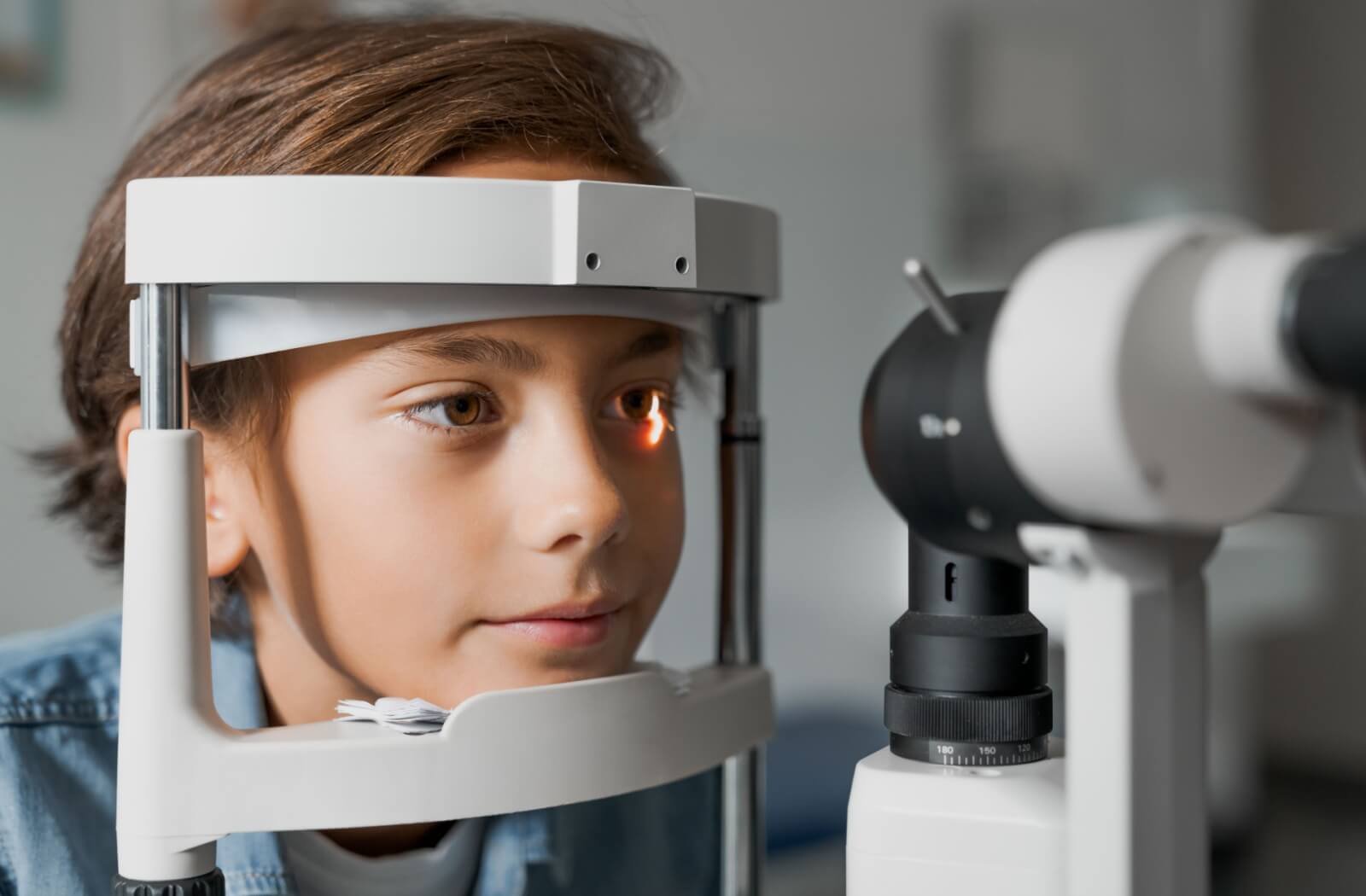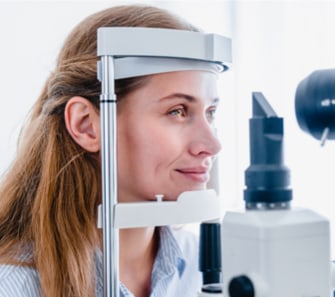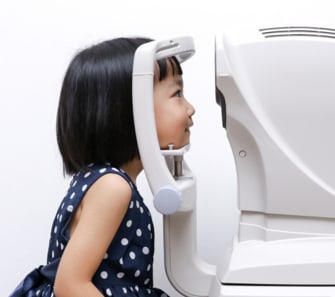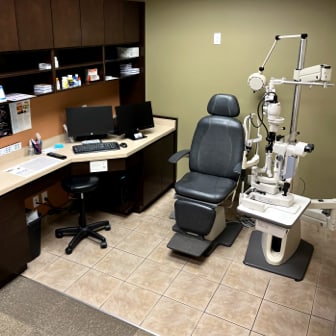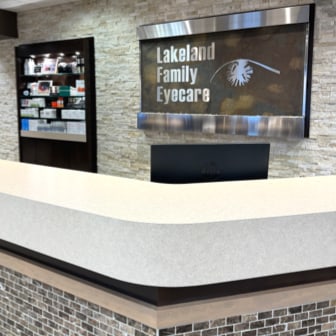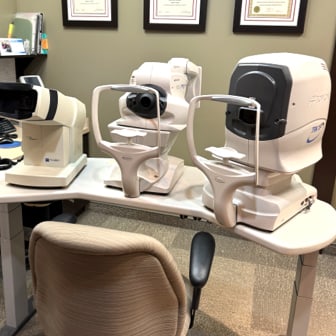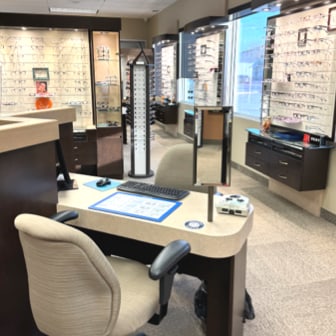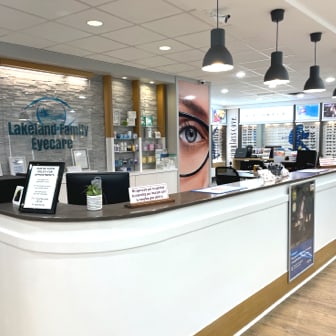Eye exams are an important part of maintaining good eye health, and this is especially true for children. As they grow and develop, their vision can change rapidly, making regular eye exams essential. However, several factors can influence how often your child should have an eye exam. These include their age, family history of eye conditions, and any existing vision problems.
The Canadian Association of Optometrists recommends a first comprehensive eye exam at 6 to 9 months of age, followed by at least one eye exam between the ages of 2 and 5, and yearly after starting school. After that, children should have eye exams annually until they are 18.
Why are Eye Exams Important for Children?
1 in 4 school-aged children has a vision problem that can affect their learning. This is because vision plays a significant role in the learning process, with 80% of what children learn through visual cues. If a child has an undetected vision problem, it can lead to difficulties in school and affect their overall academic performance.
Additionally, eye exams can also detect other eye conditions such as lazy eye or crossed eyes that may require early intervention for proper treatment. These conditions are best treated when caught early, which is why regular eye exams are crucial for children.
Factors Influencing the Frequency of Eye Exams
Here are some factors that may influence how often your child needs an eye exam:
- Age: The age of your child can play a significant role in how often they should have an eye exam. Younger children may need more frequent exams as their eyes are still developing, while older children may only need one every 1-2 years.
- Family History: If there is a history of eye conditions, such as nearsightedness or lazy eye, in your family, then it’s essential to schedule more frequent eye exams for your child.
- Previous Eye Exams: If a previous eye exam has shown any issues or potential concerns, follow-up exams may be necessary to monitor and address the issue.
- School Performance: If your child is struggling in school or exhibits signs of vision problems, such as frequent headaches or squinting, then it’s crucial to schedule an eye exam regardless of their age.
- General Health: Certain health conditions, such as diabetes, can affect eye health and may require more frequent eye exams for your child.
- Digital Device Use: The increased use of digital devices, such as smartphones and tablets, can lead to digital eye strain and potential long-term effects on vision.
- Sun Exposure: UV rays from the sun can harm the eyes, so it’s essential to ensure your child wears sunglasses with proper UV protection when outdoors.
- Sports and Physical Activities: Children who participate in certain sports or activities may be at a higher risk for eye injuries, such as being hit by a ball or airborne object.
- Poor Nutrition: A diet lacking in necessary vitamins and nutrients can impact overall eye health and increase the risk of certain eye conditions.
Consult with your child’s pediatrician or optometrist to determine the appropriate frequency of eye exams based on their individual needs and risk factors.
Tips for Promoting Good Eye Health

Aside from scheduling regular eye exams, there are various ways you can promote good eye health for your child. Some tips include:
- Encouraging Outdoor Time: Spending time outdoors has been linked to lower rates of nearsightedness in children.
- Limiting Screen Time: Setting limits on screen time, especially before bedtime, can help reduce eye strain and promote better overall health.
- Promoting a Balanced Diet: A diet rich in fruits, vegetables, and omega-3 fatty acids can support healthy vision.
- Educating About Eye Safety: Teach your child about the importance of protecting their eyes during physical activities and wearing appropriate eyewear when necessary.
What to Expect During Eye Exams
Your child’s eye exam will typically include the following:
- Visual Acuity Test: This measures how well your child can see at various distances.
- Refraction Assessment: This helps determine any vision correction needs, such as glasses or contact lenses.
- Eye Movement and Alignment Evaluation: The doctor will check for any issues with eye coordination and movement.
- Eye Health Assessment: The eyes will be examined for any signs of underlying conditions or diseases.
- Additional Tests if Necessary: Depending on your child’s age and risk factors, the doctor may recommend additional tests such as color blindness testing or a dilated eye exam.
Comprehensive & Compassionate Eye Care at Lakeland Family Eyecare
Taking care of your child’s eyes is an important aspect of their overall health and well-being. By scheduling regular eye exams, promoting good eye health practices, and educating them about eye safety, you can help set them up for clear and healthy vision.
Prevention is key when it comes to eye health, so start early and make it a priority for your child’s future. Be sure to prioritize your child’s eye health and schedule regular exams with a trusted optometrist.At Lakeland Family Eyecare, we are dedicated to providing comprehensive and compassionate eye care for children of all ages. Contact us today to schedule an appointment and give your child the gift of healthy vision.

